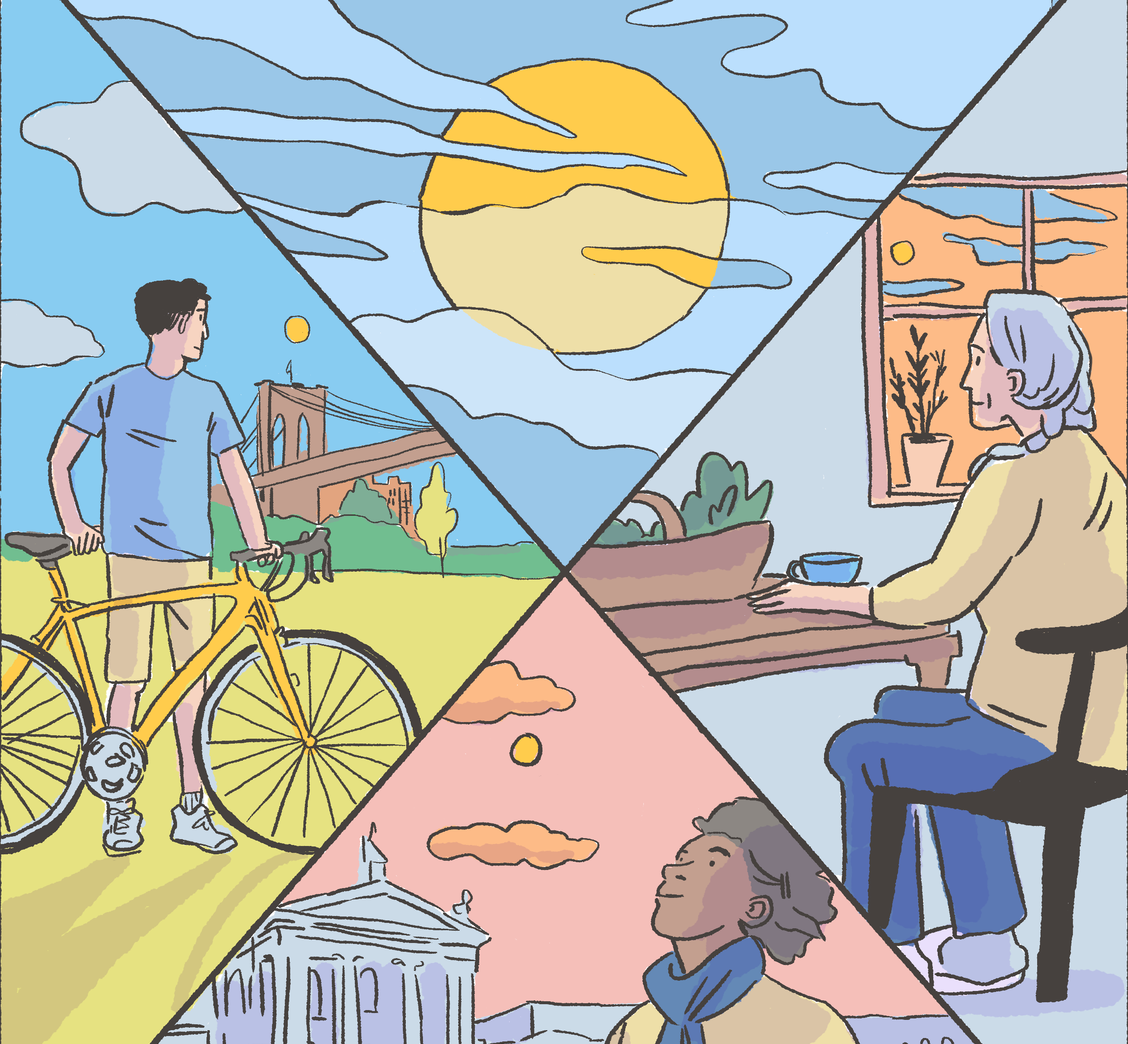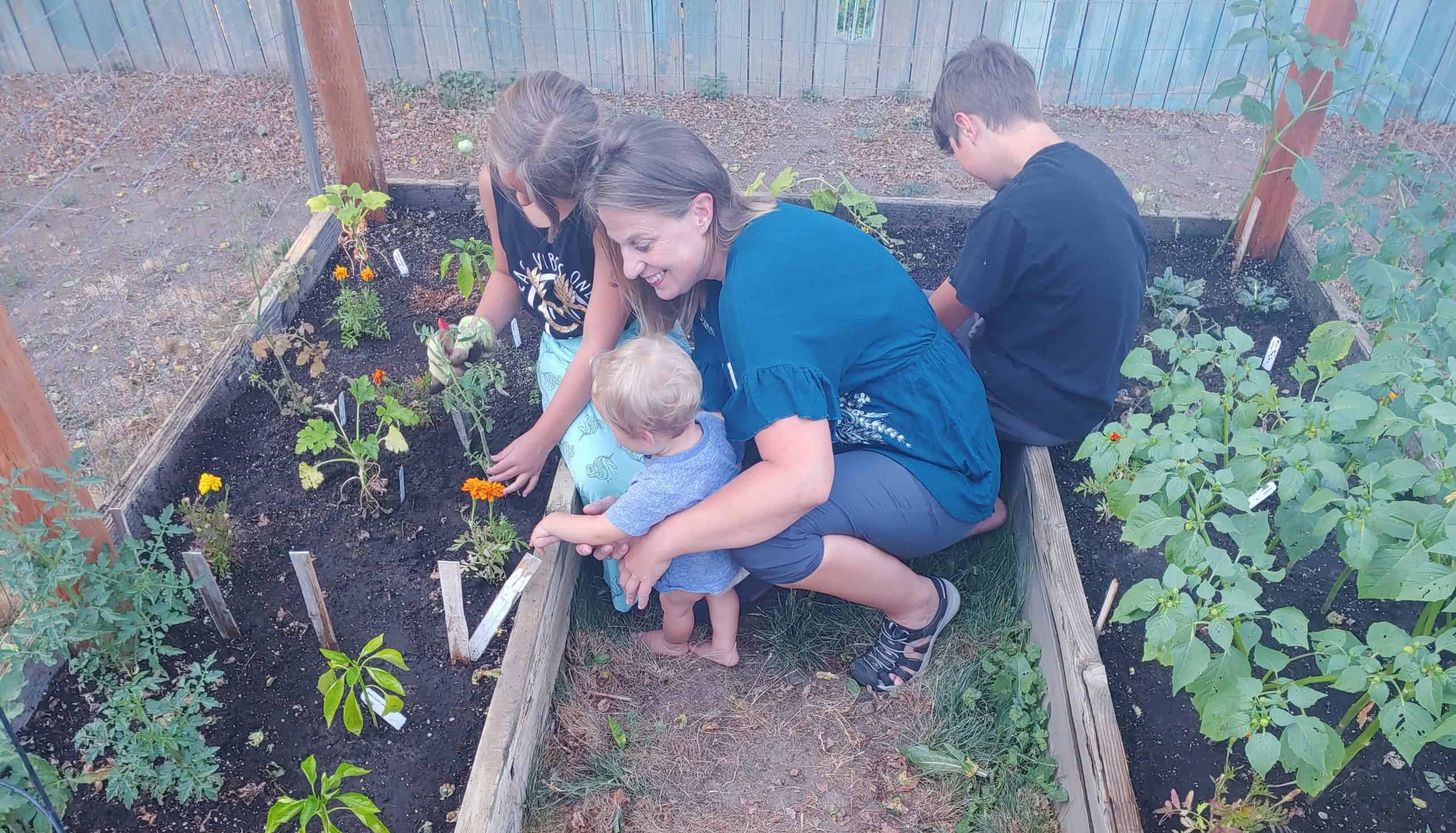The recent news hit me like a heat wave: Climate experts have no doubt that we are on our way to overshooting the 1.5°C increase in global heating the UN leaders agreed on in the Paris Agreement of 2015 by at least 1°C before the end of this century. This would have devastating consequences for the Earth and everybody who lives on it.
Guardian reporters reached out to the most knowledgeable people on the planet, all senior authors of climate reports for the Intergovernmental Planet on Climate Change, and the responses were shocking: Almost 80 percent of the respondents expect global temperature to rise at least 2.5°C above pre-industrial levels by 2100, and almost half predict at least 3°C, a catastrophic level of heating. Just 6 percent think we can still limit global heating to a 1.5°C increase.
I was worried when I read their predictions but even more worried by the lack of public response to them. Are we so used to horrifying climate predictions that we simply ignore them?
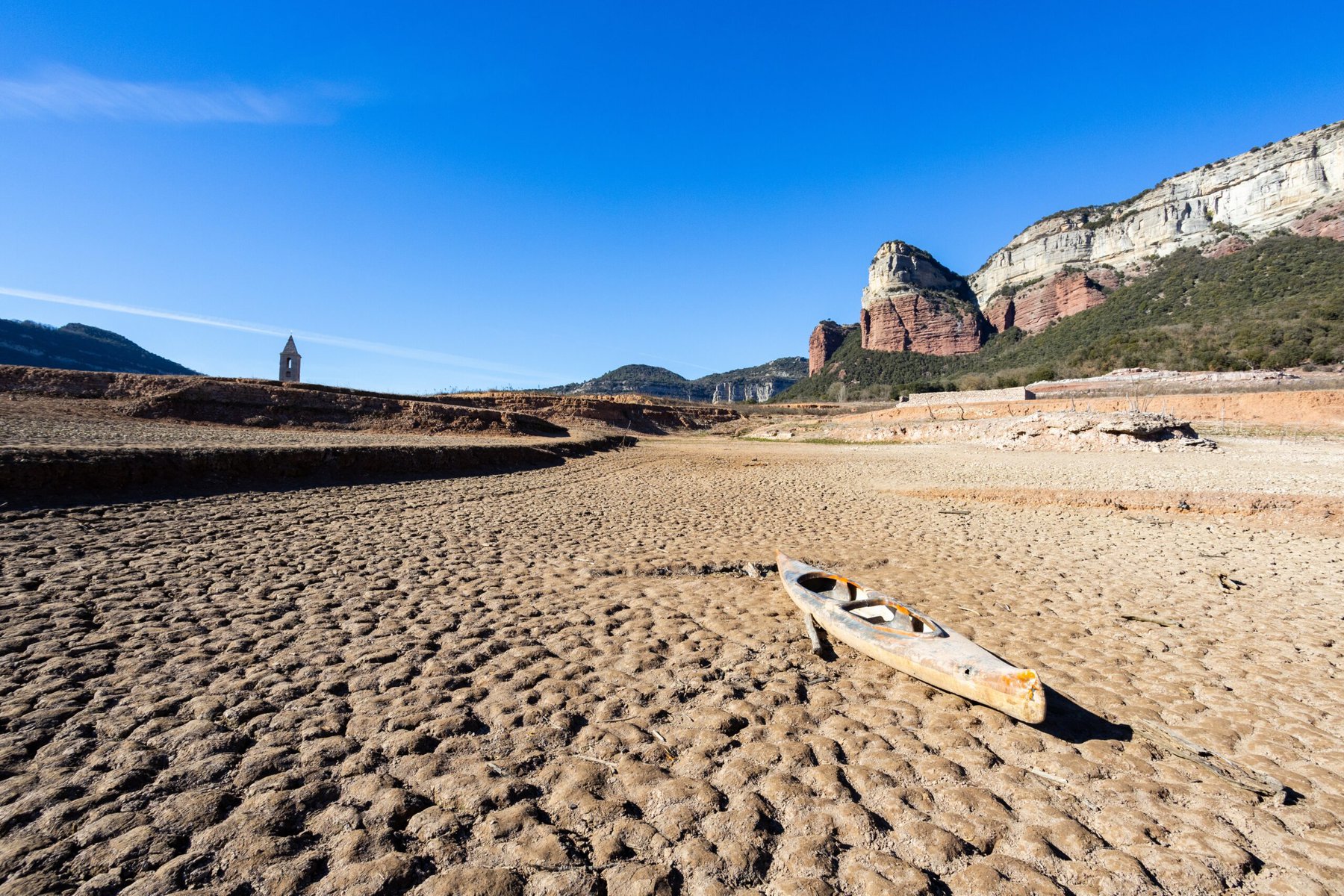
A global increase of 3°C means deadly heat waves, massive wildfires, the disappearance of the Amazon rainforest, the death of the last coral reefs and the drowning of large populated areas, including Charleston, all of Rhode Island and the Space Center in Houston. It’s impossible to distance ourselves from this. It will affect us, no matter where we live.
Some of my friends and colleagues are motivated by the bad news to intensify their climate-friendly actions, while I’ve heard from others, “It’s too late now anyways,” or, “What difference does it make if I recycle my trash or drive a diesel?”
I don’t intend to shame anybody, but I do hope we can agree we need to take this issue seriously and do more to reduce emissions. If anything, the survey results are an urgent call to action.
Luckily, the same experts also tell us what we can do to have the most significant impact on climate change.
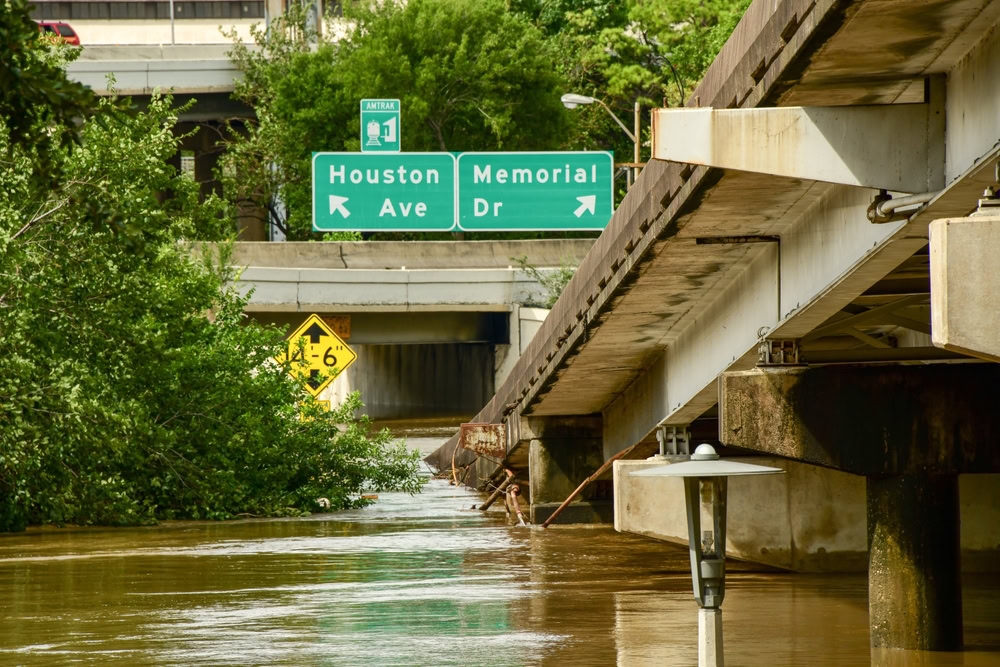
“I am convinced that we have all the solutions needed for a 1.5°C path and that we will implement them in the coming 20 years,” said Henry Neufeldt, the Head of Impact Assessment and Adaptation at the UN’s Copenhagen Climate Centre. “But I fear that our actions might come too late and we cross one or several tipping points.”
The position we’re in could hardly be clearer: We do have solutions, but we need to implement them. Now.
“Every 10th of a degree matters a lot,” one scientist said to The Guardian, which means: Everything we do matters.
EVERY action matters. EVERY flight, EVERY steak I eat, EVERY unnecessary mile I drive matters. Here are some of the biggest things we can do to help:
Vote
The scientists have identified prime actors who are responsible for failing to tackle the climate crisis: “A lack of political will was cited by almost three-quarters of the respondents, while 60 percent also blamed vested corporate interests, such as the fossil fuel industry.”
This means that we can and need to use our vote to make ourselves heard. Just look at Brazil: Under Jair Bolsonaro’s presidency, the deforestation of the rainforest reached a 15-year high. In the first six months after Luiz Inácio Lula da Silva took over as president in 2023, deforestation dropped by 33.6 percent.
Weighed down by negative news?
Our smart, bright, weekly newsletter is the uplift you’ve been looking for.I’m a single-issue voter. If a politician doesn’t care about climate change, I won’t vote for him or her. We are almost 10 years past the Paris Agreement and still, many leaders of the world are climate deniers. We can still fix this, but we don’t have time to waste on political expediency, profit margins and apathy. It doesn’t matter if they fight for all the other issues I care about, because if our communities become too hot to live in, if our oceans and planet become uninhabitable, then the other issues will no longer seem as important.
So, let’s use our power at the ballot box and at the gas pump. This recommendation is particularly powerful this year when half the world votes, including in the US, the UK, India, Mexico and South Africa. Politicians need to know that we care and that we demand action.
Take the bicycle, bus or train whenever possible
The second most powerful action we can take is to reduce flying and fossil-fuel powered transport.
I’m sure you’ve heard this before, but a scientific review study on climate change mitigation in Nature Climate Change analyzed thousands of pages of research to calculate the effects of our individual actions. You can look up exactly how much CO2 you save with each bicycle or train ride.
My yoga teacher lectures convincingly about love and compassion for all, including the planet, but flies to Bali every year with 50 of his students for a yoga retreat. Sure, Bali is beautiful, but he lives in coastal California and most of his students are local, so couldn’t he find a gorgeous location closer to home? Or at least not at the other end of the planet?
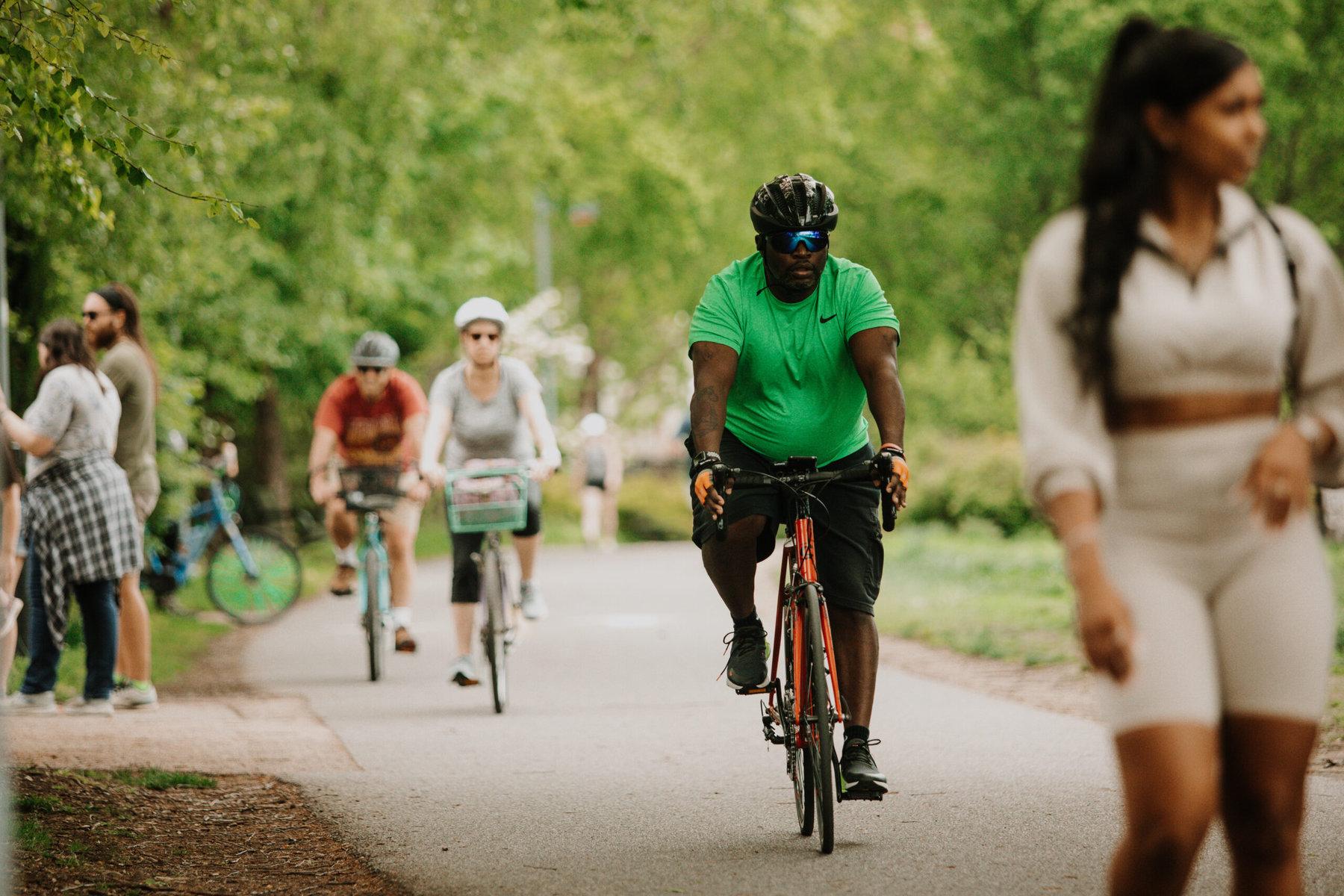
Each 36-hour-round trip is responsible for 6.7 tons of CO2 emissions, more than the average person produces in an entire year. Multiply that by 51, and you would generate the same emissions by driving 855,000 miles or 35 times around the entire globe with an average gas-powered vehicle.
“Flying is the largest single activity you can omit for the planet,” Will Stedden told me when I interviewed him and his wife Claire about their initiative to inspire “regenerative travel” — travel that gives back to the planet and communities. Have you taken the Flight Free Pledge, vowing to “fly less and save more”? Take the Jump is another website that details dozens of actions everybody can take to lessen their carbon footprint, with reducing consumption, changing our diets and flying less as the top three.
“Where does the bigger change come from?” Claire Stedden asks. “People have to start demanding, or corporations won’t change. If everybody decides to fly less, eventually you’ll find fewer planes in the air. We have to start living the change for that to happen.”
Eat less meat
The production of meat leads to significantly more carbon emissions than vegetarian and vegan goods. “In the context of food, the highest carbon savings come from dietary changes, particularly the adoption of a vegan diet,” researchers found.
Have you heard of the Plant Based Treaty? Pledgers aim to make their diets more environmentally sustainable. Since its launch in August 2021, it has received endorsements from 150,000 individuals, including five Nobel laureates and IPCC scientists, as well as 1440 NGOs and community groups and 1900 businesses.
I pivoted to a plant-based diet last year and happily experiment with homemade chickpea falafel and spinach smoothies, much to the joy and health of my family.

And beyond
Other ways individuals can have a measurable impact include participating in climate protests, opting for more sustainable construction (including investing in heat pumps) and commuting less (remote working). The Solutions Project recently detailed the measurable effect grassroots climate groups — especially those led by women and people of color — have on securing climate policy wins and pushing for clean energy projects to reduce emissions.
A recent poll in Germany, where I’m from, showed that 20 percent of youths between ages six and 19 didn’t know anything about climate change; even among the 18- and 19-year olds, one in six had either never heard of climate change or didn’t know what it meant.
We often assume that everybody is aware of climate change by now, but this is clearly not the reality. We need to learn to talk about this pressing issue in a way that people around us can relate to.
Experts have also weighed in on the best ways to inform and motivate more people, including through rebates and climate information in eateries. German universities, for instance in Munich and Dresden, are now publishing climate info alongside each dish in their cafeterias. The results show that providing an information nudge reduces the likelihood of choosing meat by 12 percentage points. Somewhat surprisingly, peer pressure didn’t work nearly as well.
A marine biologist I follow and author of the forthcoming book What If We Get It Right?, Ayana Elizabeth Johnson, talks about the power of reframing climate-friendly action. “People don’t like sacrifice. People don’t like bans. But I think there’s a way to frame that as: This is an opportunity to live a different and better life,” she recently told the New York Times. “Often we think about the changes that are needed, and we don’t look at both sides of the coin. We think about, This is going to be expensive, or, This is going to be inconvenient, without thinking about, Do you know how inconvenient and expensive climate change is? It is so much worse.”
Maybe most importantly, there is a “positive and robust” link between pro-environmental action and subjective wellbeing. I’m not saying this to make you feel good but that, too, has been scientifically proven in the above-mentioned review: “Individuals who engage in pro-environmental behaviors tend to experience higher levels of subjective wellbeing.”
In other words, among all its other benefits, caring for the environment will make you happier. The more we care for our planet, the greater our wellbeing. And that of the earth.
You can’t argue with that.







